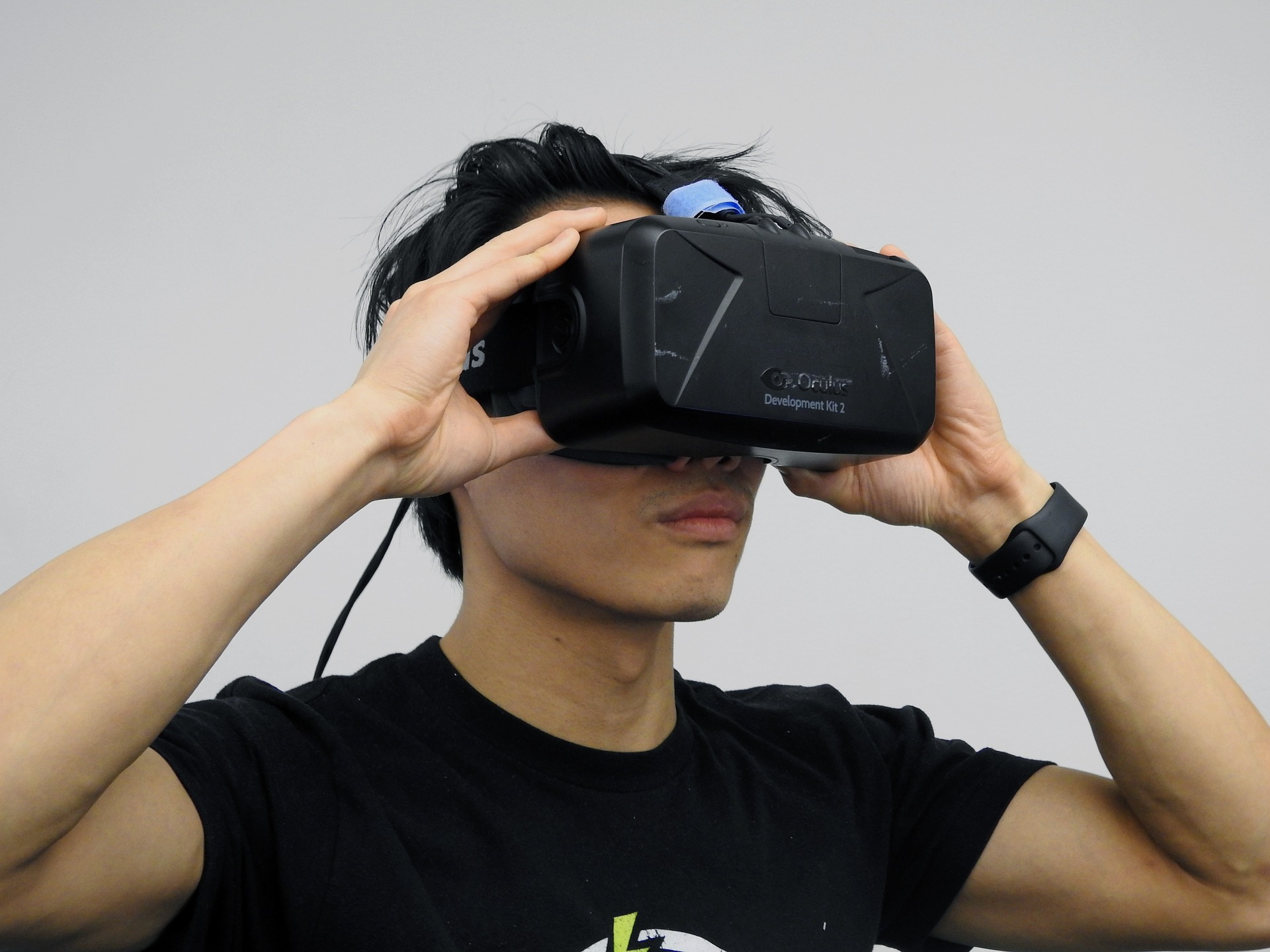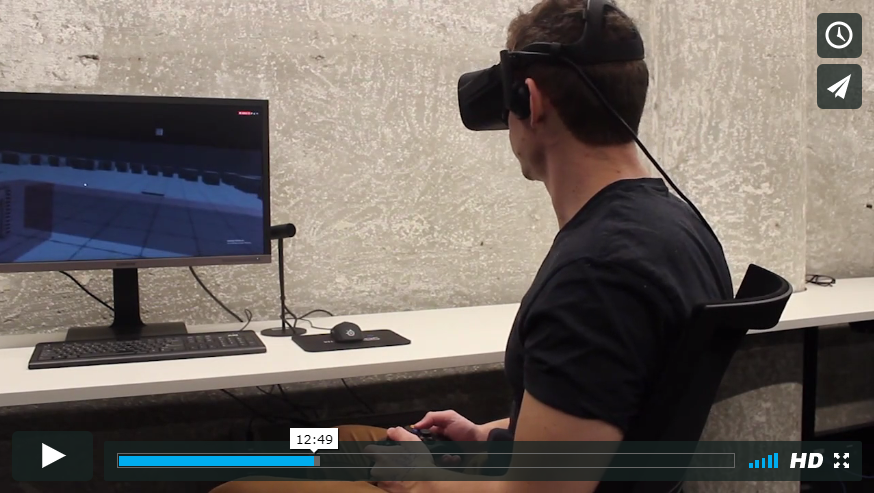‘The Psychosis Experience’: A case study using virtual reality to transform psychology education

A virtual reality simulation is offering something new to learners, thanks to a collaboration that brought together a mix of talents across the content area, learning design, programming and animation.
The simulation immerses learners in a story-driven replication of ‘typical’ symptoms associated with schizophrenic spectrum and other psychotic disorders such hallucinations and paranoid delusional thoughts, in order to build empathy and diagnostic awareness.
The evolution of an ambitious idea
Nick Formosa was considering what problem he could tackle in his final project for his Master’s Degree in Clinical Psychology, when he connected with Senior Lecturer Ben Morrison. They shared a common interest in ‘serious games’ and how they could be applied within a constructivist approach to learning design. With the shoestring budget afforded to Master’s projects, they began exploring how to use virtual reality to bring something transformative to the table.
They narrowed in on addressing a couple of important issues in psychology education:
- the need to safely expose students to experiences with clients in their earlier years of study, and;
- the wider issue in the medical community of building better interventions by having empathetic understanding.
Informing the design were two important learning outcomes that are essential to being a successful clinical or professional psychologist:
- Practitioner empathy: this is developed through increasing both empathetic understanding and attitudinal change towards individuals diagnosed with mental health illnesses;
- Diagnostic knowledge: which involves understanding and identifying symptomology of Schizophrenic Spectrum and psychotic disorders.
Together, Nick and Ben scripted a story-line that would allow learners to experience what it may be like to experience a psychotic episode. Real-world case studies informed the symptoms presented in the virtual reality experience.
The technical skills essential to make the simulation come to life came through collaboration with SAE lecturer Geoff Hill, and Daniel Stone, an old friend of Nick’s with a wealth of experience in 3D modelling. The first iteration required 3D-modelling, rigging, animation, and studio-quality recordings for environmental sounds and voice sounds. Subsequent updates and iterations have been needed to keep up with the rapid pace of advances in virtual reality hardware and software.
Through this melting pot of skills, the psychosis simulation came into being.
A story-driven learning journey
The Psychosis Experience takes place through a first-person fictional character moving through a virtual house and experiencing symptoms of Schizophrenia including auditory and visual hallucinations, and paranoid delusional thoughts. One such symptom is the visual hallucination of glowing ‘sunrays’, shown in ‘Image A’ below, which is used to guide you through the simulation.

Images: Visual hallucinations inside the immersive learning activity.
Does it achieve the learning outcomes?
The team measured the impact of the simulation against key learning outcomes. Results from a sample of 50 participants speak for themselves, with gains across each outcome measure. After experiencing the simulation, participants demonstrated significantly more favourable attitudes and empathetic understanding towards people experiencing psychotic disorders.
Interestingly, participants’ performance on the knowledge measure was also significantly higher after the experience. So despite the simulation not providing any overt ‘teaching’, participants gained diagnostic knowledge about the symptomology of Schizophrenic Spectrum and other psychotic disorders.
The full results from their study have been published in the Australian Journal of Psychology.
Meet the creators!
Click through to watch a recorded presentation and demonstration inside the virtual reality simulation:
This transformative simulation is being shared and discussed across many communities, including the 2017 Learning Innovation Summit. Please get in touch if you would like to find out more about ‘The Psychosis Experience’ or join the discussion with colleagues in Yammer.

